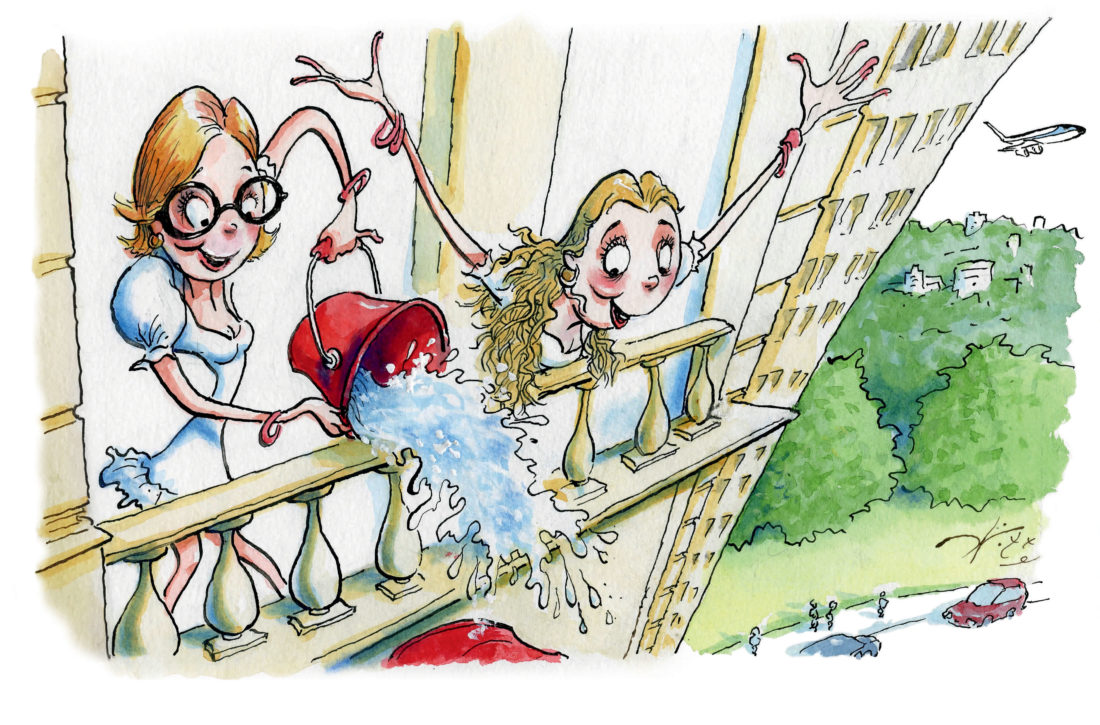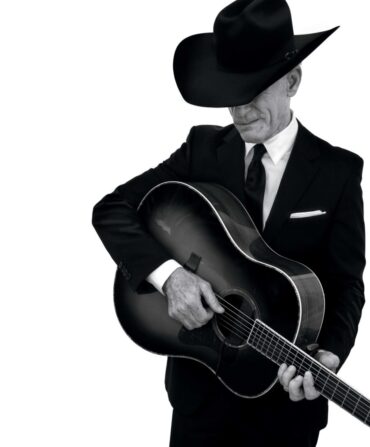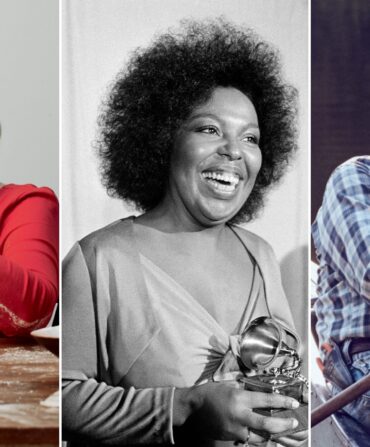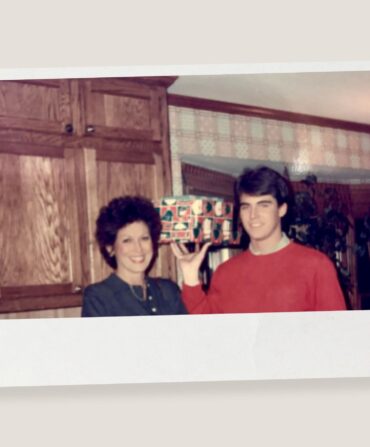For an entire, glorious month this summer, I have rented a house on Martha’s Vineyard, an act that makes me the first person in my family to make a sane summer vacation decision. I grew up in the Mississippi Delta, a place where the average high temperature in July is ninety-three degrees and where the low rarely dips below seventy-three. Worse, the humidity level hovers at 94 percent. On a website called climatemps.com, the summers of my birthplace are described as “hot and muggy with thunderstorms.” Despite these facts—or, now that I think about it, in defiance of them—we steadfastly refused to head north (to lovely, chilly Maine, say, or perhaps Rhode Island), choosing instead the almost identical climate of Destin, Florida, except that the lows there drop no further than seventy-seven.
Don’t get me wrong—we loved it. We loved the one-story Frangista motel, where the banging screen doors were just a few running steps from the water. We loved hanging out on the beach all day and crabbing by night. We loved the carefree, uncrowded nature of the place before it got so built up with near skyscrapers it started looking like the Gulf Coast version of Atlantic City. I still really love Seaside, about twenty miles southeast, but I am older and wiser and in charge of my own destiny these days, which means that the great majority of my visits occur in the fall, winter, and spring.
There was one all-too-brief period when we made it maybe halfway to Maine, during the two summers my grandparents took a house in Linville, North Carolina. It was made of logs and had a woodstove and a wide front porch, and my cousin Frances and I rode horses and built houses for the imaginary fairies out of twigs and moss and bark and mushrooms in exchange for the silver dollars the owner of the woods would leave us in return. In the Fourth of July parade, we wore the traditional embroidered frocks my grandmother had brought back from Switzerland, and for the country club costume party our mothers safety-pinned our matching Florence Eiseman frocks together at the hip and sent us off as Siamese twins. Much as we both hated our identical dresses and cardigans and red kid Mary Janes, even then I knew it was an inspired idea. The stuck-up blond chick in a pink tutu won first prize, and I sort of went off Linville after that.
So back again we went to Destin, but after Richard Nixon’s ascendancy to the presidency in 1969, Washington, D.C., an even hotter destination, was added to the summer itinerary. To call D.C. a swamp is to not even use a Trumpian metaphor—the National Mall and parts of Foggy Bottom were once marshes or parts of the Potomac that were filled in, and large swaths of the city are barely at sea level. In July and August, the air is so heavy and wet with humidity it is possible to actually see it. Still, my father was heavily involved in politics, and D.C. increasingly called. “Out saving the free world, baby” was his unvarying response whenever my young self would ask him where he’d been. That sounded about right to me, and by the time I was twelve, I was allowed to accompany him on these missions alone (which is to say without my mother, who happily stayed home with my little brothers).
A little background: Such had been the economic and political isolation of our long-benighted state (as well as much of the rest of the Deep South) that until Nixon’s election, the last sitting president to have bothered to visit had been Teddy Roosevelt in 1902, and he only came to hunt bear. My father and the Mississippi delegation had given “the Prez” (as Daddy called him, though not, of course, to his face) their support at the 1968 convention (as opposed to Ronald Reagan or Nelson Rockefeller), and Nixon was a grateful man. I was grateful too—not only did he make more than one trek to Mississippi, my own summers suddenly got a whole lot more interesting. On one of my first D.C. visits, Agnew was still vice president, having not yet pleaded nolo contendere to charges that he’d failed to pay taxes on income that happened to come from bribes. During the election, I had been all in, sporting a “Spiro is my Hero” watch; now the veep presented me with a slightly more sophisticated “gold” bracelet boasting a charm in the form of the vice presidential seal. There’s a photo, currently holding a tongue-in-cheek place of honor in my powder room, and we’re both grinning away, me in a chic cotton shirt printed in tiny green and orange elephants chosen especially for the occasion. Afterward, Daddy took me to lunch at the Sans Souci, the famed French power joint a block from the White House, and I had coq au vin for the first time along with a tiny glass of wine.
We stayed, as we almost always did, at the Hay-Adams, which overlooks Lafayette Square. This was decades before security breaches forced Pennsylvania Avenue to be closed to through traffic—via hideous concrete barriers—and you could walk through the park and be at the White House gate in five minutes. I loved it there—it was the first park I’d ever been to without a swing set. Also, despite the early rumblings of Watergate, it felt like an innocent time. During the day, when I wasn’t feeding the squirrels or watching old men play chess, I ducked back inside the hotel, where I helped the Filipino barman fill up bowls with peanuts. At night, I tagged along with Daddy and formed opinions of his cocktail partners: thumbs-down for Howie Phillips, acting director of the Office of Economic Opportunity (who later opposed Sandra Day O’Connor’s nomination to the Supreme Court); a resounding thumbs-up for the dashing Russell Train, chief of the Environmental Protection Agency, which Nixon had created. At the hotel restaurant, the waiters tossed Caesar salad tableside and shaved impossibly thin slices off whole sides of smoked salmon. We had steak Diane at the Jockey Club and clams casino at the Market Inn, where the jolly waitresses slipped me frozen banana daiquiris and I got an early education in jazz from the late, great piano/bass duo Tex and Lenny.
Nixon’s 1972 reelection slogan, NOW MORE THAN EVER, had particular resonance with me—I did not want my education in the ways of the world to come to an end. Yet there we were in the summer of 1973 in Destin once again. My best friend, Jessica Brent, and I didn’t spend much time on the beach in those weeks, glued instead to the snowy Frangista television set, watching John Dean and James McCord testify in front of Sam Ervin’s committee. The following summer was marked by Nixon’s resignation, but all was not lost. Gerald Ford ascended, and by June of 1975, I was back in D.C., this time with Jessica in tow.
It was a brief but halcyon time. Ford was a highly decent, blameless figure. The Ford kids were cute and seemingly wholesome—everyone had a crush on Jack. Betty Ford took the stigma out of both breast cancer and drug addiction. On the fledgling Saturday Night Live, the worst presidential trait the cast could find to lampoon was Ford’s exaggerated clumsiness. Instead of having to smear on orange makeup and rant and rave, the only thing Chevy Chase had to do was fall down. Even Dick Cheney, Ford’s young chief of staff, seemed normal.
Further, refugees were not only popular, official committees were formed to welcome them. Upon becoming president, Ford pushed through a bill to fund the resettlement of almost 120,000 displaced South Vietnamese and set up a task force to which my father was appointed. We sort of owed these folks one, after all, but even then, Ford was met with lots of resistance from the right (that many Vietnamese would never be able to assimilate, they said) and the left (even Jerry Brown didn’t want them in California). “To ignore the refugees in their hour of need would be to repudiate the values we cherish as a nation of immigrants, and I was not about to let Congress do that,” Ford said after the bill was passed.
The night before the refugee committee was due to be officially seated in a ceremony at the White House, Jessica and I had drunk so much champagne at a cocktail party given by a journalist friend of my father’s, we thought it would be especially hilarious to teeter in our wedge heels on our narrow Hay-Adams balcony, no more than a ledge really, while loudly addressing the pigeons at Lafayette Square and pouring the contents of our ice bucket onto the awning below. So much for our much-longed-for sophistication. The next morning, feeling a tiny bit worse for the wear, we were waved in at the gates and ushered to the East Room for the swearing in. What Daddy had not known (or had forgotten to tell our mothers) was that the committee would then board Air Force One for Arkansas’s Fort Chaffee, where the first wave of refugees was arriving and where he would be spending the night.
To say that Jess and I were elated to be on our own would be a dramatic understatement. We promised to behave and were then introduced to Cheney, who seemed like a nice fellow, devoid of the snarl of later years and so eager to be helpful he supplied us with the number of the White House security office. (It was, thrillingly, 456-7007.) Cheney implored us to use it if we ran into even the smallest hint of trouble, and believe me when I say that we tried mightily. In the end, alas, all was peaceful. We shopped at Garfinckel’s, spent hours at the National Gallery on Daddy’s orders, and ate a delicious room-service dinner. When we arrived back home a few days later, our mothers were none the wiser.
I have always loved that memory. Not only is it indicative of that less hysterical era, one blessedly free of helicopter parenting and concrete barricades, it also captures a kinder, gentler America, not to mention a kinder, gentler Cheney. So it was that after years had passed, after I had graduated from both boarding school and college in the Washington area and spent some years covering politics for a living, I found myself at a dinner at the British embassy where Cheney, now vice president, was also a guest. I was sitting at a table nearby and could tell he was not in a happy mood. As he had just had one of his many heart episodes, the embassy’s social secretary had thoughtfully asked the kitchen staff to send out a plate of fruit as his dessert—a gesture that so incensed him that he sent it back in favor of the rich chocolate mousse the rest of us were enjoying. Still, once the plates were cleared, I decided to forge ahead. I thought he would get a kick out of the memory of his kindness to two young teenagers, of his pressing that Bondian number (now changed—I’ve checked) into our hands. I was wrong. Instead, I chattered away as people do when the person they are talking to resolutely refuses to respond, and when I realized it was no use, I turned and walked away.
No matter what was up with Cheney, he could never ruin the story for me. It might have been hot in our nation’s capital, but I was a lucky girl indeed to have had so many early seats at so many tables, and I am forever and deeply grateful to my father even though he never took us to Maine. Anyway, I’ve finally arranged my very own vacation with beloved friends in a cool clime, and even though this summer promises to be another marked by televised hearings, I will not be watching. I will be keeping my sanity well intact by cooking and swimming and reading and taking long beach walks with the dog while breathing in air that I will not be able to see.








